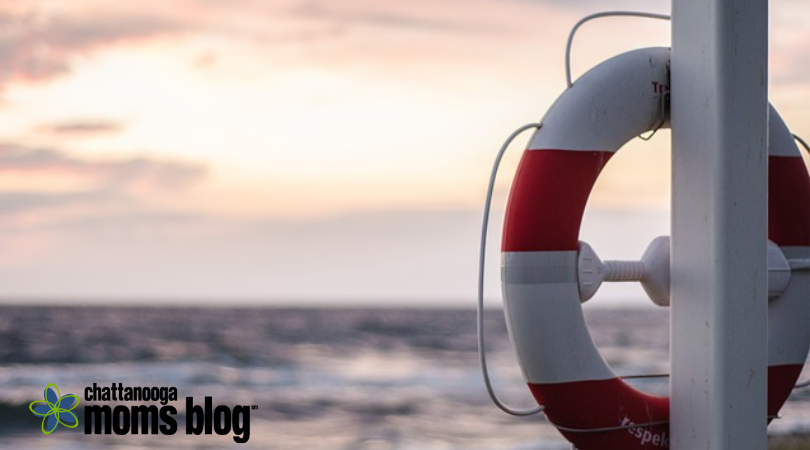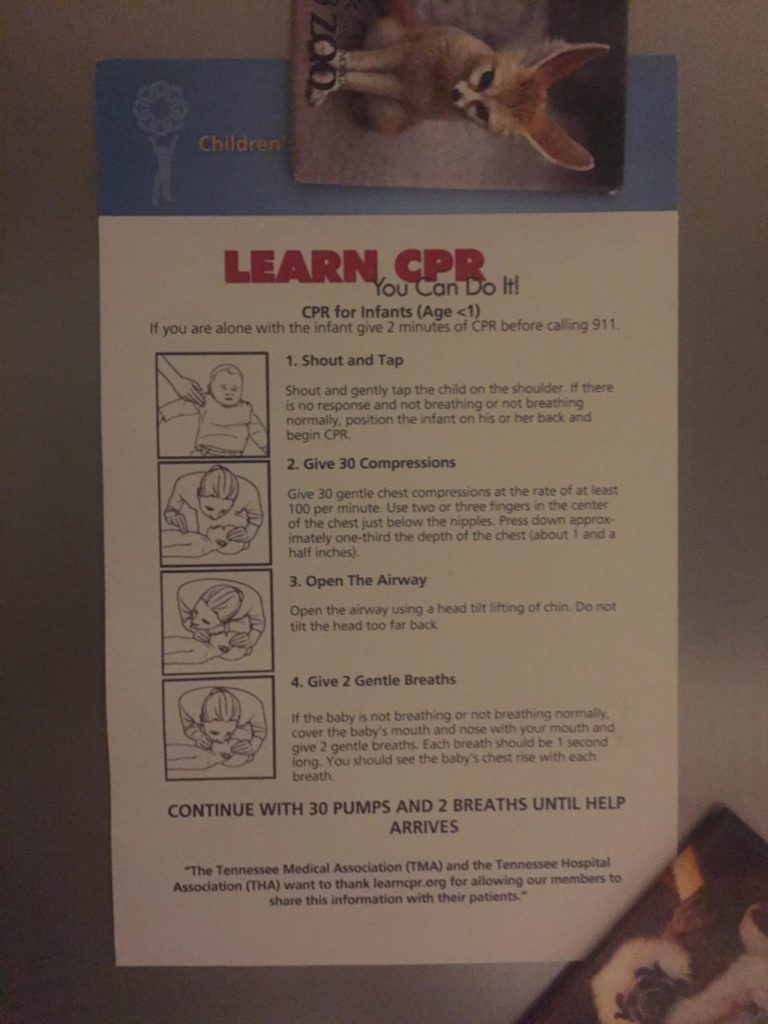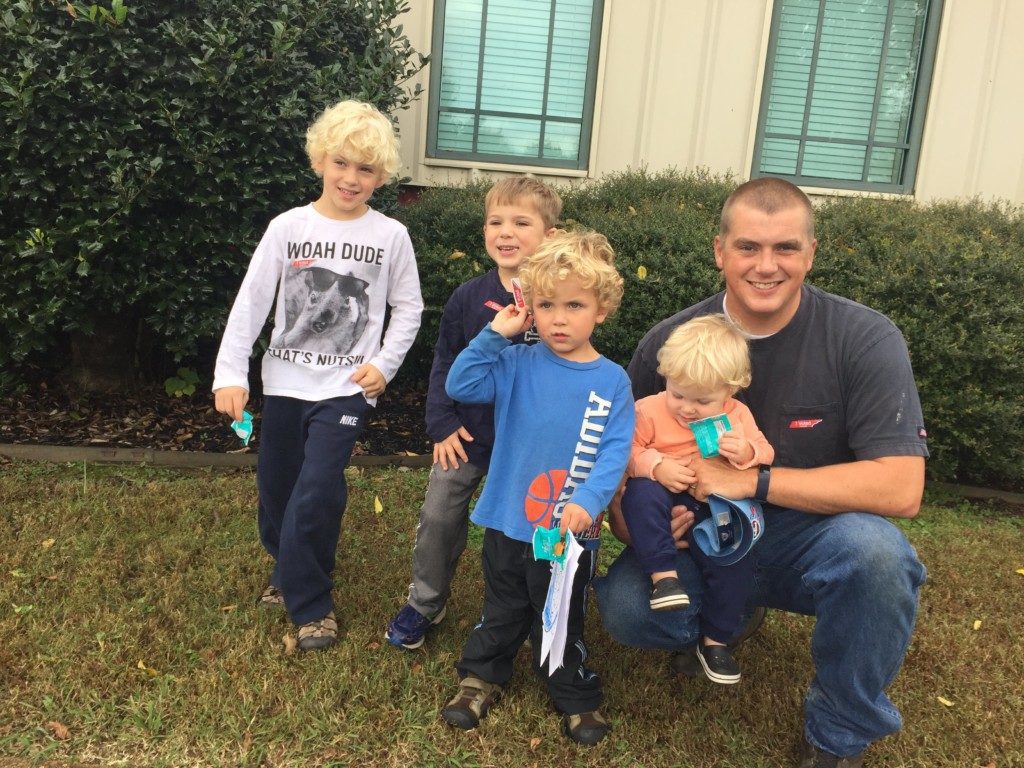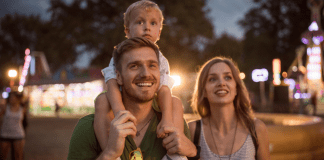
The last thing I want to do is keep you up at night worrying about fires, accidents, loss of consciousness and whether your kid knows your last name. Well, actually, let me rephrase — I do want to keep you up at night if you aren’t prepared for these things. With my husband working as a firefighter and first responder, my family is exposed a little more than average to tragedy caused by emergency situations. Thankfully, we have not experienced personal emergencies ourselves and I pray we never do. I am aware of the amount of guilt that hangs on a parent when their child is exposed to danger in an emergency, so I try to think of how I can best prepare my children for what could happen at any time.
Here are eight ways in which we consistently work to prepare for an emergency:
1. Fire drills
Fire drills are pretty important to me as well as my husband. I remember growing with my dad making sure we had a fire plan at each new house we moved into. Thankfully, we never had to use them, but there was always a hammer to break windows or an escape ladder to get down from the second floor, and a meeting place that we had to go to immediately. In our current house, the biggest fire hazards (water heater, dryer, stove) are between our room and the kids’ room. We have smoke alarms everywhere, but in the event of a fire big enough to evacuate, the chances I make it into their room are slim. We have taught them about crawling on the floor to leave through the back door or shutting the bedroom door if they cannot leave the room and using the bookshelves to help each other out of the windows. Getting out is key, but many families have endured the gut wrenching loss of life when everyone is scattered after escaping and someone goes back into danger unnecessarily. We have a meeting spot away from the house where everyone needs to gather, and then a safe and trusted neighbor’s house to go to and alert 911.
Pro tip: Pick certain days of the year (or every month) and practice your fire drill in order to ensure that your child’s muscle memory will react correctly in a crisis.
2. Practice calling 911
This doesn’t mean you only practice calling 911; practice calling everyone! Fairly often, I have my oldest call my husband at work or his grandma. Even with technology forced on kids so early, making a phone call can still make a kid shy and uneasy. I make sure he knows the passcode to my cell phone since we don’t have a landline. This website has some good tips for practicing 911 calls.
Pro tip: The key phrase is “I need help,” and operators are well trained to be able to detect a real emergency.
3. Checking in with spouses/family often
After I had my first child, I realized that on some days my husband would be on shift and we would go 24 hours without calling each other. It didn’t seem like a big deal when it was just me at home, but when I realized that our baby would be by himself if I lost consciousness or was seriously injured, and likely no one would realize it until my husband got off work the next day, I became very anxious. We make sure to check in during the day even now, but it was more important then when I had no one who could make a 911 call for me.
Pro tip: Set reminders to call or text if your spouse is at home alone with young kids. Decide together on a response time that is reasonable to wait before driving home or contacting 911.
4. Keep CPR instructions displayed
The best gift our L&D nurse gave us when we left the hospital was a CPR chart with step-by-step instructions for an infant or child. I had always thought I’d just remember what to do, but I am also the kind of person who throws away the brownie box and pulls it out five times while I am measuring the three ingredients. I figured if a nurse dealing with babies needed to display CPR instruction in her house, so did I.
Pro tip: I try to keep one door of my fridge clear of anything else so I can find the CPR instructions quickly or can direct another child to find it for me.

5. Know real names
Do your kids know how to tell someone your first and last name if they are lost? How about your phone number? Address? It’s so much information for a young child and at first I tried to make sure they could recite it all. But then, when my niece was lost and the police were trying to figure out how to get in contact with family, I realized how handy social media has become. I still think it’s good for an older kid to be able to rattle off a phone number and address, but if you are on Facebook, Messenger or Instagram and your kid can tell a policeman your name and occupation, they can probably find you just as fast and message you through the app. Chances are you will have your phone with you if your kid is lost and will get the message quickly. I am adding occupation here because most young kids can remember that more easily than numbers and it’s a good filter for finding you on the web.
6. Identify safe people
Sheesh, it’s bad world we live in when I need to make sure my four-year-old doesn’t walk up to an adult who would capitalize on the absence of a parent; what I can teach them however is finding a “safe person.” We talk about looking for a badge or logo on a shirt identifying the store or place where we are. We have also counseled them to look for a woman who has children with her and ask for help. Police can often be seen as intimidating, but when we see them in restaurants or elsewhere, we try to emphasize that they would be there to help.
Pro tip: Take your kids to a fire station (even if they have had a visit at school or preschool) and ask the firemen to let your kids see them in full gear and talk while using their air tank. It can get a little scary for young ones, but it’s good to let them know that these are safe people too.
7. Have a password
I am just getting around to adding this to our preparedness arsenal. I’ve only heard of it from my mother-in-law, though I am sure it’s in use in other families as well. She taught my husband and sister-in-law at a young age that their family had a secret password. No one else knew it and they weren’t supposed to share it with anyone. If there was ever an emergency and my mother-in-law or father-in-law couldn’t come to get them, they weren’t supposed to go with anyone who didn’t know the password. If they needed to be picked up from school or a game and hadn’t been informed that it wasn’t going to be their parents, the adult who was getting them would need to get the password from their parents before my husband could get into the car. Telling kids “Your mom said it was fine!” is a common line, but when a child can respond with a planned response about a family password, it will hopefully scare off any potential predator who knows that the child is prepared to spot a lie.
Pro tip: Use a word a kid will remember, but not one so common that they forget to identify it.
8. Looking out for each other
Good ol’ fashioned “Watch out for your brother!” is a great lesson to practice. We hope that all kids would be aware and keep an eye out for danger, but more and more I believe they need to hear the message often to remember to be compassionate, watchful and helpful to one another.
Pro tip: If you have lots of children, then you can have more eyes to watch out for one another!



















